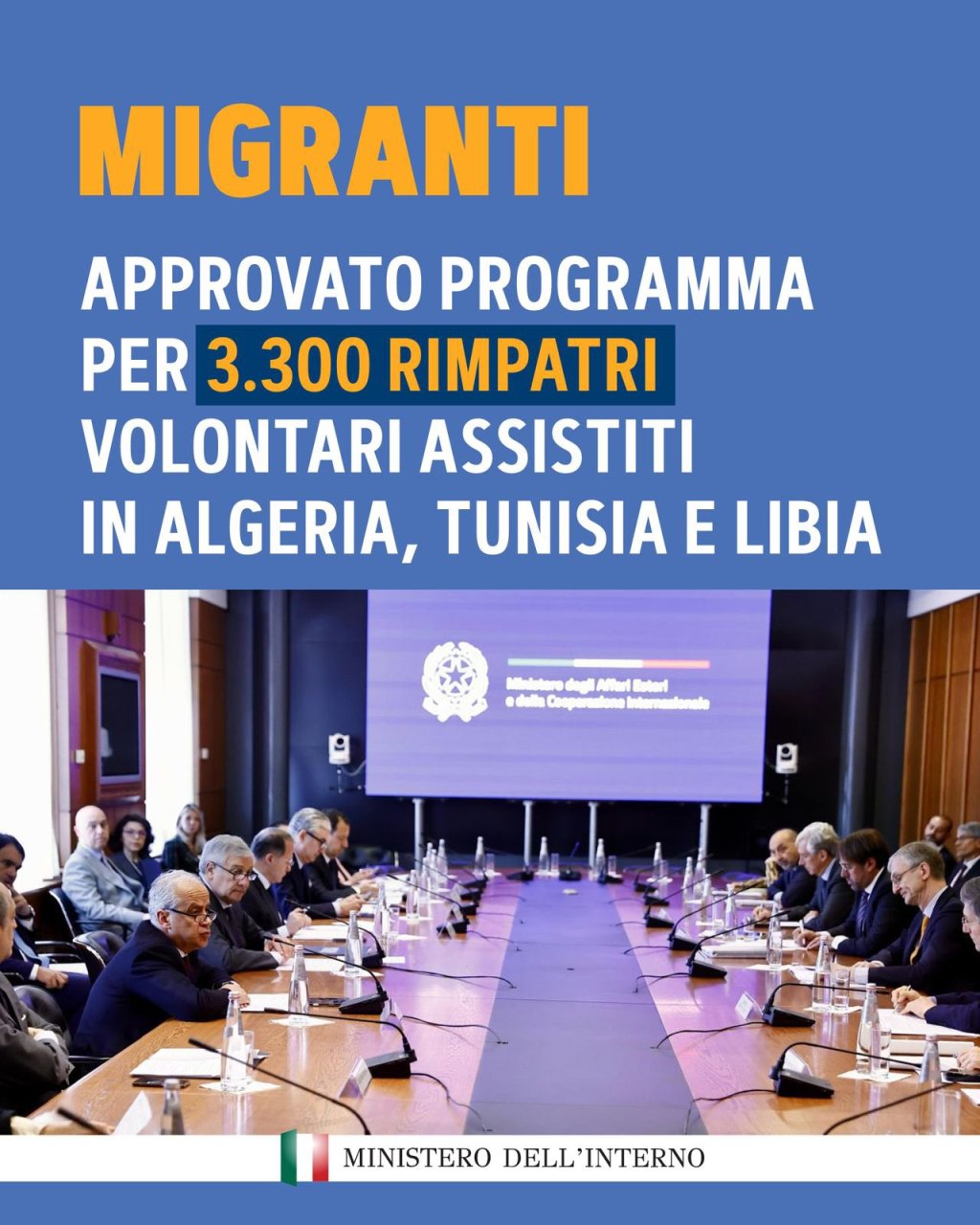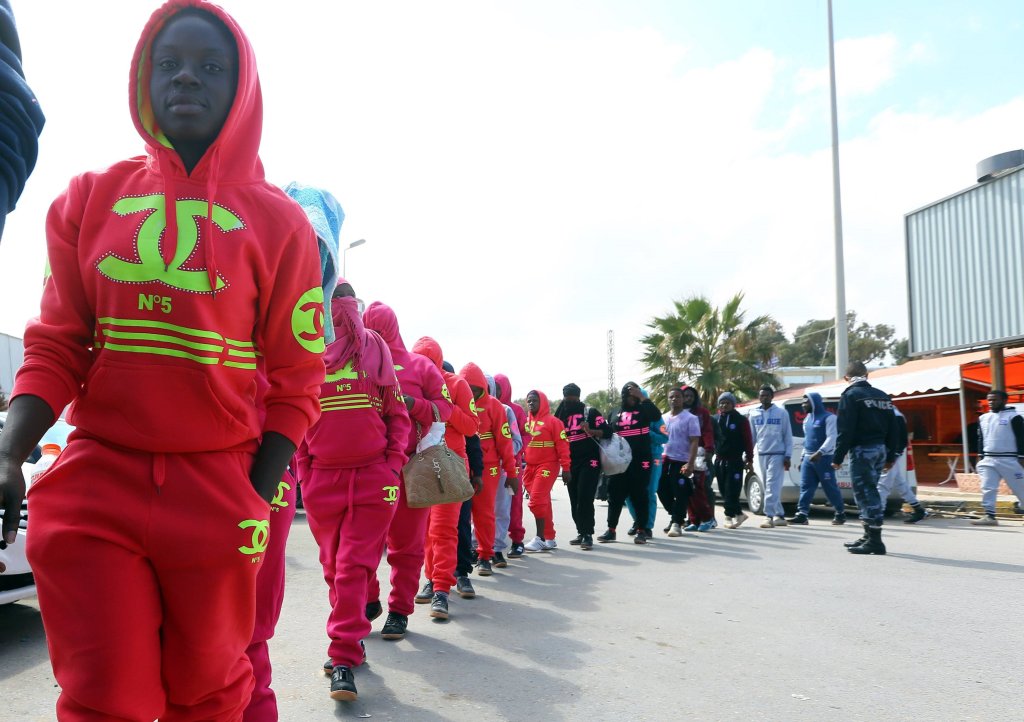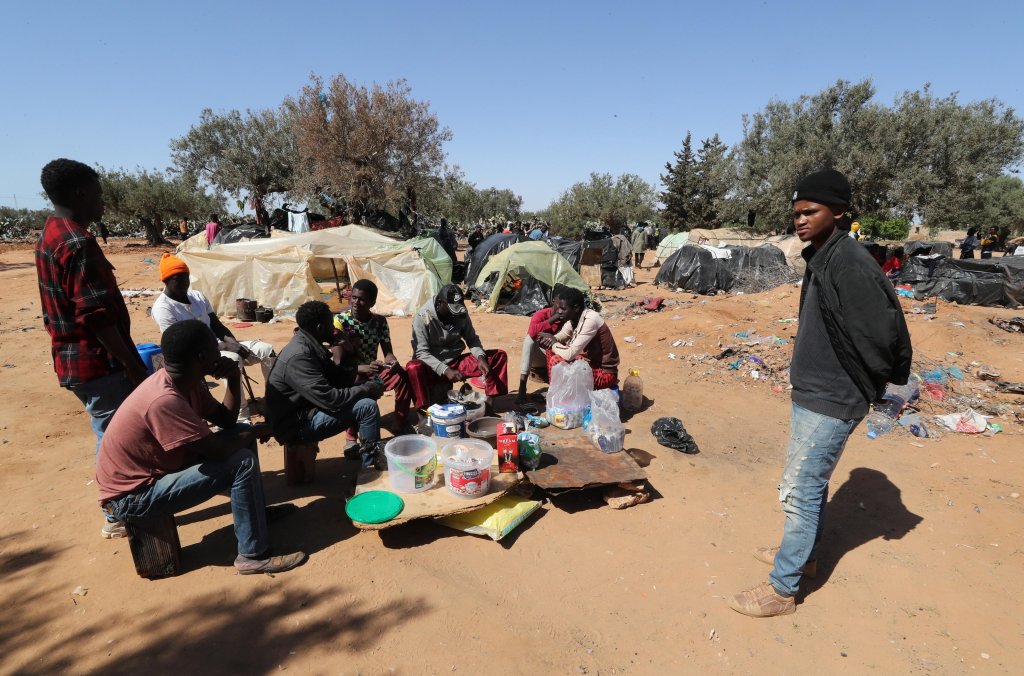Italy has confirmed it will provide 20 million euros of funding to programs of voluntary repatriation for migrants in Algeria, Tunisia and Libya. The program will be operated in collaboration with the UN Migration Agency (IOM).
The voluntary repatriation program, to which Italy has pledged to contribute, will target the most vulnerable migrants and include around 3,300 beneficiaries, stated the UN in Italy in a press release dated April 2.
A joint committee for cooperation and development met earlier this week, presided over by Italian Foreign Affairs Minister Antonio Tajani. Also present were the Deputy Foreign Affairs Minister Edmondo Cirielli and Interior Minister Matteo Piantedosi.
This was the first time an Italian interior minister had taken part in this committee, and showed the priority the Italian government was giving to the project, stated the UN press release.

Initiative part of a wider strategy
During the committee meeting, Tajani reportedly said that the projects discussed helped contribute to Italy’s foreign affairs objectives, "peace, development and growth." Tajani also underlined that Italy, in this period of world crisis, was one of the few countries that was maintaining its funding for humanitarian and development projects and remained an important reference partner for many parts of the world.
Minister Piantedosi wrote that he believed the new voluntary returns initiative was part of a "wider strategy aimed at fighting illegal migration and reinforcing cooperation and development aims in migrants’ countries of origin."
On Thursday (April 3), the minister posted on his X page that Italy was "continuing its commitment to voluntary repatriation." In the post, he highlighted the return of "143 people who were in Libya irregularly, have been flown back to their countries of origin, thanks to the help of the IOM."
This Italian strategy is not new. In 2024, Italy’s Prime Minister Giorgia Meloni visited Tunisia several times to try and encourage more people to take up voluntary return programs rather than attempting the dangerous Mediterranean crossing to Italy.
In 2024, the IOM arranged for 7,250 migrants from sub-Saharan African countries to return to their countries of origin via voluntary return programs, according to the Tunisian Foreign Affairs Minister Mohamed Ben Ayed. Those numbers are almost three times as many as took part in the programs in 2023, when 2,557 took up the offer of a voluntary return and in 2022, that figure stood at 1,614.
Read AlsoItalians support policies for migrant regularization
Programs can sometimes take a long while to become effective
Last week, the Tunisian authorities asked the IOM to step up their efforts in returning people since they said there had been just 1,500 people returned since the beginning of the year.
In 2024, the IOM says it returned 16,207 migrants from Libya via voluntary return programs. In order to carry out returns, the IOM has to wait for the countries of origin to agree to a contingent of people arriving and the bureaucracy can reportedly take months.
In 2022, the IOM explained to InfoMigrants French that sometimes during the process, migrants can lose patience, as they have to wait so long for something to happen. "There are various reasons why these voluntary returns don’t always happen quickly," explained the IOM at the time. "Sometimes that is for political reasons in the country of origin, sometimes it takes a while to get the correct documents for each person, for those who don’t already have a passport for instance, and then there are the logistics, linked to organizing the flights and things."
Read Also
Tunisia calls for more cooperation to fight irregular migration

Double-pronged strategy
The Italian Ministry of Foreign Affairs (La Farnesina) stated in a press release that it will be managing a project designed to strengthen institutional capacities in partner countries, and it should involve around 400 employees working in this sector. The second part of the project is about funding the 3,300 beneficiaries, who would be among the most vulnerable migrants. Their repatriation would be carried out in a "sustainable and efficient way," stated the press release.
The Italian Agency for Cooperation and Development AICS, would provide "technical support" and would also monitor the entire project AICS has also been tasked to start up another project that would focus on socio-economic reintegration of the migrants who are returned. This project is expected to take into account "the capacity of Italian businesses and civil society organizations."
The project is expected to "reduce pressure on Italian reception centers," reported the newspaper Il Quotidiano d’Italia. The grants for the migrants on the program are expected to cover their travel costs home, as well as offering a start-up grant to allow them to reintegrate back home, added the newspaper.

Moreover, the project is also expected to have a secondary effect. By working with the Tunisian authorities to repatriate third country migrants from Tunisia, Italy hopes that the Tunisian authorities will in turn be more amenable to taking back their own citizens who might have arrived in Italy but not have permission to stay there.
Some of the money is also destined for projects in Tunisia itself to promote work opportunities in Tunisia and help fight smuggling networks.
Voluntary repatriation programs offer several advantages over forced repatriation. The programs accord "more dignity to the migrants themselves," states the newspaper, "cost Italy less, allow for a better management of migration, and provide the possibility of reintegration in the home country," reported Il Quotidiano d’Italia.
However, it can, acknowledges the Italian government, be difficult to convince some migrants to take up the offer of a voluntary return. It is also important that the sustainability of the reintegration projects is "guaranteed" and that people are not left hanging once they get home, otherwise there could be a further risk that a migrant might try and depart once more.
